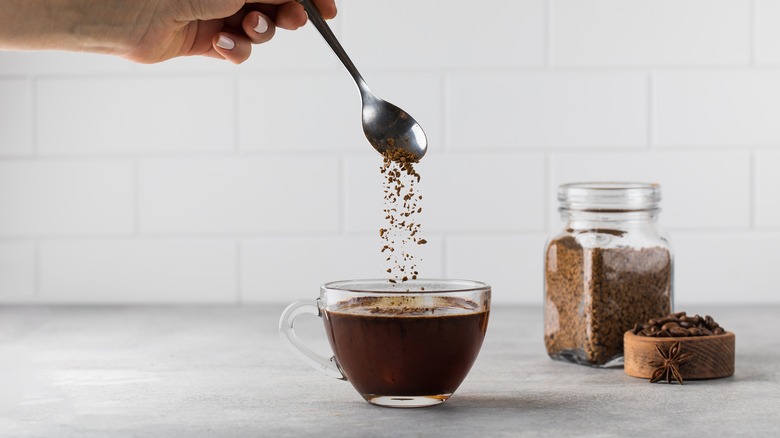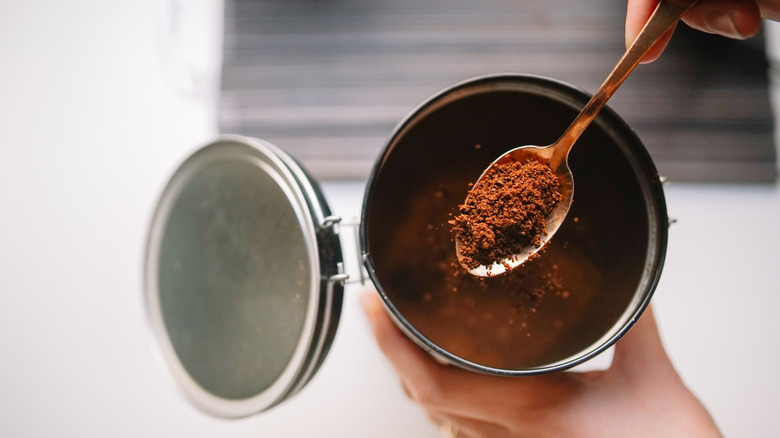The Major Mistake You're Probably Making With Instant Coffee
Instant coffee is a wildly versatile ingredient in the kitchen. You can add it to melting chocolate for a variety of sophisticated treats, and it's even in some Japanese curries for bitterness and acidity. In a pinch, you can use it as a substitute for espresso powder. But, today, we're talking about old reliable instant coffee in its platonic form — the steaming, comforting beverage — and if you're brewing your bevy with tap water, you're doing it wrong.
We get it. Instant coffee can be a utilitarian beauty for coffee lovers in situations where they don't have access to a coffee maker. If you're camping or traveling, the tools at your disposal may be limited, in which case any way you do the brew is just fine. However, if you fall into the camp of at-home instant coffee fan, there's a simple way to upgrade your quick cuppa: Swap the tap water with filtered water.
Since instant coffee is made by dissolving freeze-dried coffee granules in water, the flavor and aroma of the coffee can't hide between bad-tasting water. If your tap water tastes metallic or acidic, that's going to show up in your coffee. Tap water in large cities with a municipal water source often tastes like chlorine, which is sometimes used to kill germs, and in rural areas, well water often contains sulfur, leaving behind a musty flavor. That's why many restaurants serve triple-filtered water, and filtered water belongs in your instant brew, too.
Skip the tap water and make your instant coffee with filtered water
Filtering water turns the infamous "hard water" into soft water, removing excess minerals and impurities for a better flavor. When it comes to making better-tasting instant coffee, depending on your preference, using filtered water could mean investing in a home filtration tool, using bottled water, or purchasing jugs of pre-filtered water from the grocery store. At a Walmart in New York, a gallon of purified water costs $1.37, which shakes out to roughly $0.08 per cup of instant coffee. Home water filters typically either hook up to the sink faucet and filter the water as it's poured or are freestanding tools that do not connect to a water supply, like a Brita pitcher or countertop filter appliance.
For the best cup of instant coffee, use filtered water heated to 195 to 205 degrees Fahrenheit using a kettle. Overly hot water can scald the coffee, resulting in an unpleasant bitter flavor. Pro tip: The ideal ratio is 1 ½ teaspoons of instant coffee per 8 ounces of water. For an extra cozy finishing touch, preheat your mug, and opt for a quality, good-tasting brand (Starbucks VIA Instant Pike's Place Roast Coffee is our favorite).

